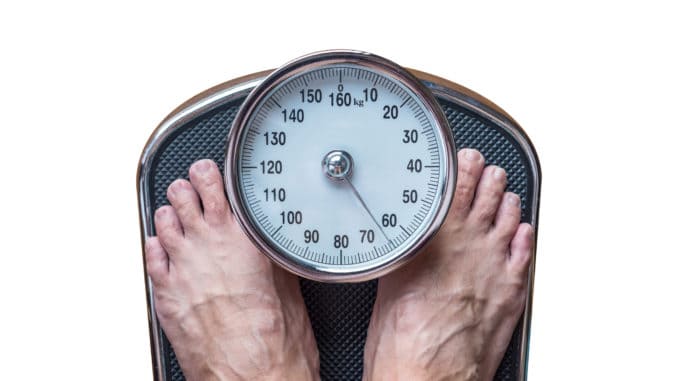
[cmamad id=”22842″ align=”center” tabid=”display-desktop” mobid=”display-desktop” stg=””]
How to make sleep your best friend for fat loss…Wake up lighter – and with a rigid erection, LOL
—-Important Message—-
You won’t believe what George Bush and Bernie Sanders have in common…

———-
How to wake up 3 pounds lighter – every day
Stick with me here. We’re going to first take a quick detour about sleep… And then tie it into how to lose belly fat and improve erections in men…
Okay, so… Everybody knows that diet and exercise are critical to maintaining health…
But a lot of people overlook the importance of proper sleep.
Research has repeatedly shown that not getting enough sleep is associated with an increased risk of obesity.
The effect remains even when other factors (including genes) are taken into account.
Optimizing sleep is critical to improving any aspect of health and fitness.

These scientists carried out their research at the Department of Epidemiology and Prevention, National Center for Global Health and Medicine, Tokyo, Japan.
The International Journal of Obesity published their results.
The study looked at body fat in people who slept very little.
“We examined short sleep duration and body mass index, waist circumference, visceral fat area, and subcutaneous fat area.”
The researchers assessed body fat in a number of different ways.
This included advanced scanning techniques of belly fat (belly fat produces a lot of inflammation and causes many health problems).
The researchers looked at over 6,000 adults.
“The study subjects included 5,400 men and 642 women aged 30 to 75 years who underwent an abdominal computed tomography scanning examination.”
It turned out that men who slept longer had lower BMI, smaller waists, and less body fat.
“In men, BMI, waist circumference and subcutaneous fat area decreased with increasing sleep duration after adjustment for age, physical activity, smoking, and drinking.”
These researchers recommend further research into the subject.
“Further research is needed to explicate the biological mechanisms behind these relationships and to see whether interventions addressing inadequate sleep could treat or prevent obesity.”

A Korean study looked at the effect of sleep duration on abdominal obesity (belly fat). They published their results in the journal Obesity.
Almost 9,000 adults were included in this study. They looked at obesity and abdominal obesity.
They defined abdominal obesity as a waist circumference greater than 90 cm in men.
[cmamad id=”22843″ align=”center” tabid=”display-desktop” mobid=”display-desktop” stg=””]
People who slept less than five hours a day had the highest BMI and the largest waists…
“Those sleeping less than 5 hours a day had the highest BMI and waist circumference compared with those sleeping 7, 8, or 9 hours a day.”

Researchers at the University of Chicago looked at the effect of insufficient sleep on weight loss. They published their results in The Annals of Internal Medicine.
They did this experiment on 10 obese adults.
“…10 overweight, nonsmoking adults (3 women and 7 men) with a mean age of 41 years and a mean body mass index of 27.4 kg/m²…”
They looked at the effect of dieting during two weeks where the participants slept either 8-1/2 hours a night or 5-1/2 hours per night.
“…14 days of moderate caloric restriction with 8.5 or 5.5 hours of nighttime sleep opportunity…”
Sleeping 5-1/2 hours a night decreased the amount of fat lost by 55%.
The participants also lost more muscle during that dieting period.
“Sleep curtailment decreased the proportion of weight lost as fat by 55% and increased the loss of fat-free body mass by 60%.”
The study provides good evidence that short sleep duration is a cause of fat gain and obesity.

The University of Washington even published a study looking at sleep and body mass index in twins.
They analyzed information from identical twins and non-identical twins and published the results in the journal Sleep.
That study showed that sleep duration amplifies the genetic influence on body mass index.
“Shorter sleep duration is associated with increased body mass index and increased genetic influences on body mass index.”
Sleep influences how your genes program your body to store fat.
“Shorter sleep duration increases expression of genetic risks for high body weight.”
These studies show the importance of getting adequate sleep to maintain healthy levels of body fat.
And, the same factors will contribute to better morning wood…
—-Important Message About Storing Less Body Fat—-
This 45-second activity burns up extra fat and uses it for energy…
If you want to store less fat in your body, especially in the belly area, you need to burn it up as energy.
And this 45-second activity burns up the fat that’s already in your fat cells, a process that scientists call lipolysis.
Lipolysis is when your body is burning fat all the time. Even while you’re lying on the couch.

Even while you’re eating a slice of pizza and drinking a soda.
PS. This also helps reverse erectile dysfunction.
———-

- Short sleep duration in association with CT-scanned abdominal fat areas: the Hitachi Health Study.
https://www.ncbi.nlm.nih.gov/pubmed/22349574 - The association between sleep duration and general and abdominal obesity in Koreans: data from the Korean National Health and Nutrition Examination Survey, 2001 and 2005.
https://www.ncbi.nlm.nih.gov/pubmed/19180067 - Insufficient sleep undermines dietary efforts to reduce adiposity.
https://www.ncbi.nlm.nih.gov/pubmed/20921542 - Sleep duration and body mass index in twins: a gene-environment interaction.
https://www.ncbi.nlm.nih.gov/pubmed/22547885
- Sleep duration and mortality: The effect of short or long sleep duration on cardiovascular and all-cause mortality in working men and women.
https://www.ncbi.nlm.nih.gov/pubmed/14592192 - Natural Patterns of Sleep | Healthy Sleep
http://healthysleep.med.harvard.edu/healthy/science/what/sleep-patterns-rem-nrem
